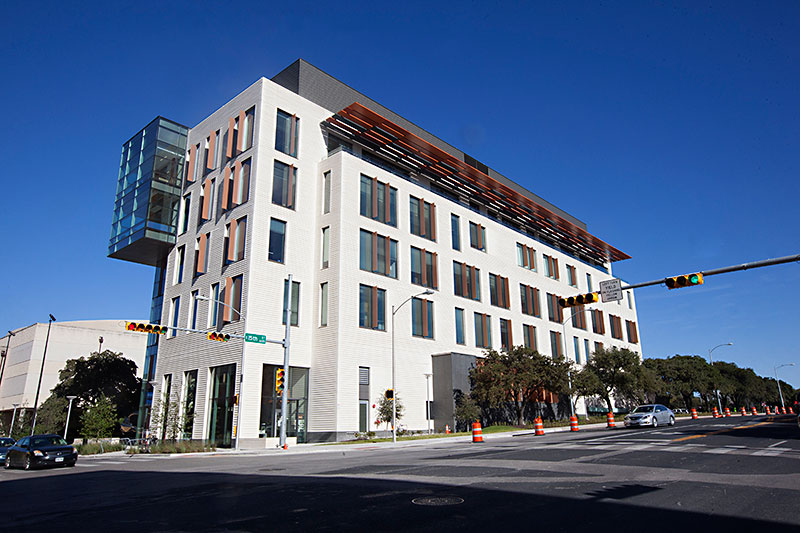Central Health: “Well-functioning”
Positive reviews for the health care provider
By Michael King, Fri., Feb. 23, 2018
Last week, Central Health received the results of a "performance review" study commissioned last year and delivered by health care consultants Germane Solutions. Overall, the study concluded that Central Health is "a well-functioning hospital district that compares favorably to similar systems across the country." It noted that there are performance areas needing improvement, several of which the agency has already begun to address: supplying additional specialty care to underserved communities, better public communication about the agency's functions, some changes in governance (e.g., term limits for board members), and diversifying funding sources (e.g., through grants and philanthropy).
The consultants noted that Central Health has a unique and complex structure, in that it doesn't own its own hospital or clinics – the common model – but delivers care through a "public-private partnership" model under which its partners, Community Care Collaborative (including Seton Healthcare Family), CommUnityCare (partnered with more than 20 federally qualified health center clinics), and the Sendero Health Plan (an HMO that will be subject to its own review later this month). The report notes that the Central Health model provides flexibility for different health care needs, but gives the agency less direct control, and can be confusing to the local public, uncertain of the actual role of Central Health. (The report does not directly address a pending lawsuit against Central Health for alleged inappropriate spending on the UT-Dell Medical School, and that relationship is also an exception to the national hospital ownership model.)
The report notices the strain created by steady population increase throughout the region, and recommends continuing focus on expanding specialty care. The authors acknowledge the progress of Dell Medical in training new doctors, but adds, a "'make and buy' plan needs to be accelerated to help address the [specialty care] shortage. In the short term, Central Health needs to commit to creating more specialty care access ... [and] to dramatically boost the number of providers in the metro area."
The consultants also conclude "Central Health's role in supporting care delivery is often hidden or misunderstood by the community it serves," and recommend an "Intel Inside"-type marketing campaign to make the various roles of Central Health – and its numerous partnership programs – better known and comprehended. On the governance side, it recommends board member term limits as a more "contemporary" standard – while noting that board appointments are made by the Austin City Council and Travis County Commissioners Court. (There's no acknowledgment that term limits for experienced board members have their own drawbacks.)
In a letter formally accepting the report, Central Health CEO Mike Geeslin accepted most of the findings, qualified others, and noted, concerning the question of physician shortages, that the report effectively "affirms the decision to invest in a medical school in Austin by having faculty, residents, and students working with our population and affiliated with the Central Health brand." Geeslin wrote that the agency intends to commission more frequent performance reviews, and "is committed to working through these recommendations with the Board of Managers, its partners, and a broad, diverse cross-section of the community."
Got something to say on the subject? Send a letter to the editor.











